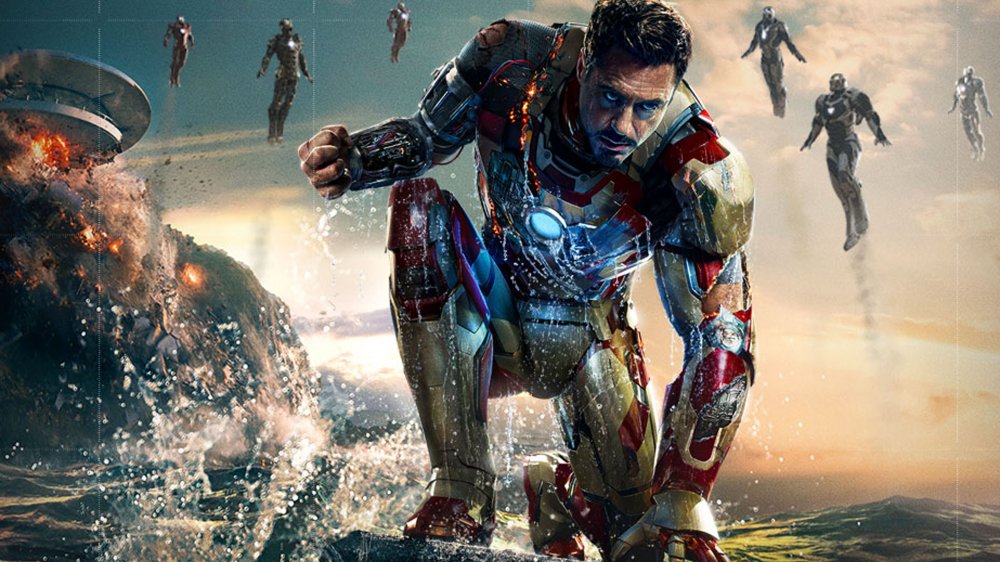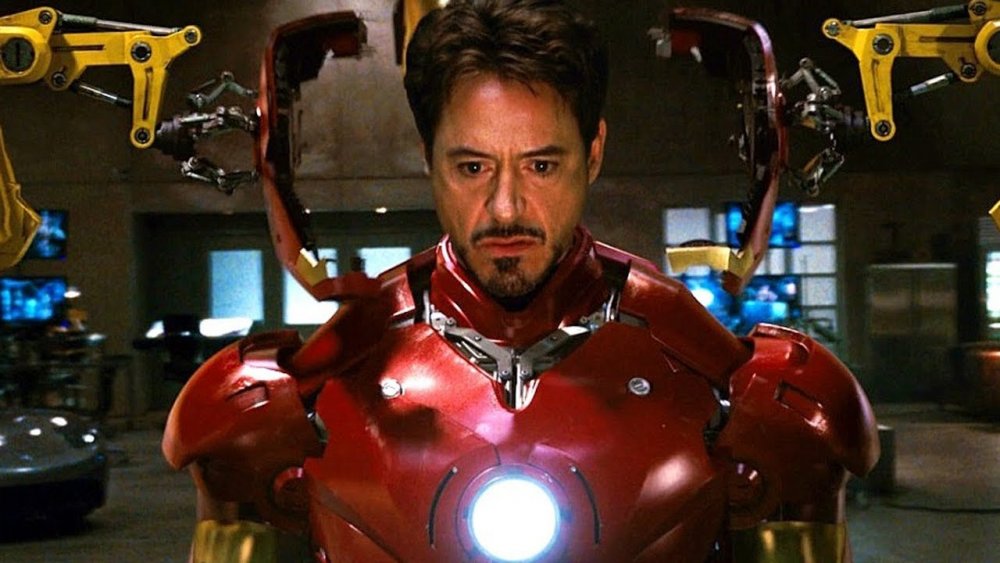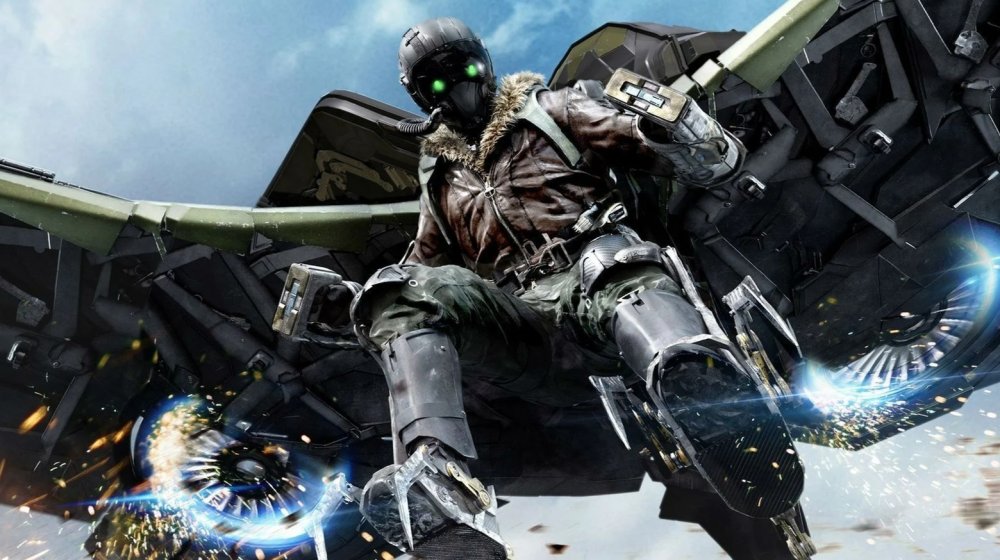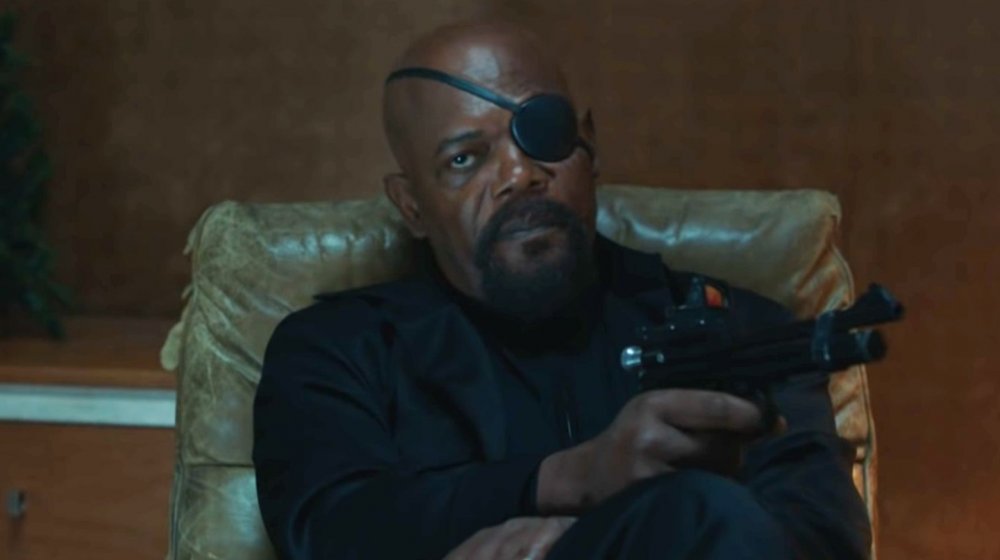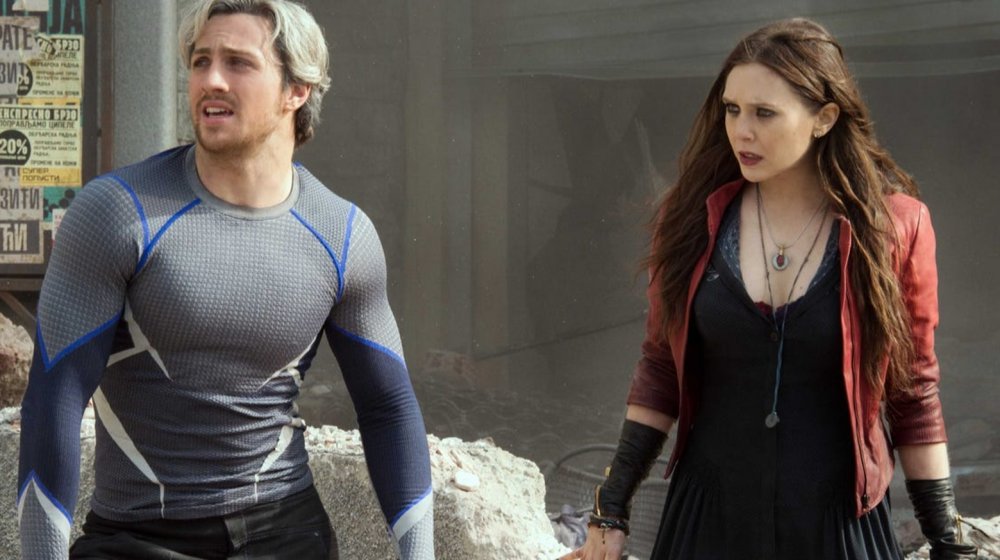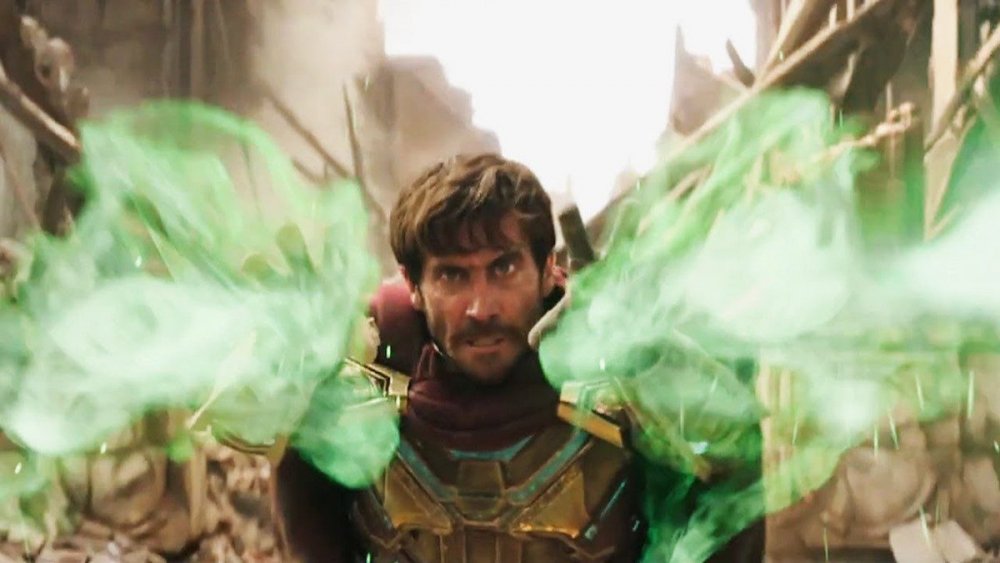Stark Industries Easter Eggs You Missed In Marvel Movies
Robert Downey Jr.'s portrayal of Iron Man has been the heart of the Marvel Cinematic Universe since its inception. The character caught on as soon as he arrived on the big screen. Since then, Tony Stark has grown to be one of the most prolific characters in the franchise — appearing in ten different films, including the post-credits scene of 2008's The Incredible Hulk. With all those appearances, it's kind of stunning that he manages to keep his threads so fresh. Honestly, it's as if he dons a brand new — and likely very expensive — set of armor every time he's on screen.
How on Earth does he afford his vast arsenal of military-grade suits? Stark didn't become a genius, billionaire, and playboy philanthropist overnight. His family company, Stark Industries, was founded in 1940 by his father, former S.H.I.E.L.D. operative Howard Stark. The weapons manufacturing company quickly rose to prominence and profited handsomely from its lucrative government contracts. There's no gravy train like a congressional appropriations bill, and Stark Sr. road that one all the way to the bank.
Throughout the MCU, Stark Industries has been a key component of some of its biggest stories. While it is an obvious part of the Iron Man trilogy, it makes its presence felt in several other movies, as well. Sometimes the references are obvious, while others are more subtle. Aside from providing fun Easter eggs for fans to hunt down, these minor references to the company actually serve an important function maintaining Stark Industries as an unifying plot thread running throughout the entire Infinity Saga.
Stark Industries created Iron Man, and Iron Man created the MCU
2008's Iron Man set the stage for Stark Industries' introduction. The film centered on Tony and provided some insight into his life before becoming the armored Avenger. For the most part, he was brash, arrogant, and reckless. He lacked the sense of responsibility he would gain during his time as a crime fighter. His demonstration of the Jericho missile, while impressive, drove this point home. Before founding the Avengers, he never once considered the dangers that came with the weapons his company created. Talk about moral hazard.
Reality hit Stark hard when an explosive produced by his own company detonated right in front of him — nearly killing him. He learned that the Ten Rings terrorist organization stockpiled Stark Industries' products and used them to their sinister ends. His time as their hostage was a wake-up call that made Stark realize the grave harm his company had perpetrated. The result was the end of the company's weapons production and the beginning of Stark's run as Iron Man.
Stark Industries inspired The Vulture's crime spree
New York City was in ruins following the final battle in 2012's The Avengers. An alien army isn't exactly careful when it comes to property damage. Adrian Toomes (Michael Keaton), the head of Bestman Salvage, found great work fixing up the city in the aftermath of that climactic battle. He was making steady money doing it — at least for a while. His good fortune ended when the United States government and Tony Stark took over his operation. Toomes was essentially a victim of crony capitalism. In a different film series, he might have been the hero. Bitter and out of work, he turned to a life of thievery as the cunning Vulture, first seen in 2016's Spider-Man: Homecoming.
Toomes made a name for himself by stealing all the discarded alien technology just to make ends meet. He actively undermined the Damage Control project, which overtook his operation after the battle of New York. He perpetrated his biggest heist on Stark Industries directly, attempting to abscond with a plethora of advanced weapons technology. Spider-Man (Tom Holland) arrived just in time to apprehend him, and prevent him from hijacking an airplane loaded with dangerous tech. Although Toomes was thwarted, he stands as a living example of the human collateral damage created by a hungry corporation like Stark Industries.
S.H.I.E.L.D. was partially replaced by Stark Industries
As revealed in 2014's Captain America: The Winter Soldier, S.H.I.E.L.D. was a compromised organization. A HYDRA incursion threatened to bring the entire operation down from the inside — and nearly succeeded. A significant number of S.H.I.E.L.D. operatives revealed themselves to be deep-cover HYDRA agents, which led to the whole unit being dismantled and rebuilt from the ground up. In the meantime, another group needed to step in and take the reins while S.H.I.E.L.D. reorganized. As it happens, Stark Industries was the prime business for the job.
The loss of S.H.I.E.L.D. was devastating for the Avengers, as the organization provided many of their important resources and intelligence. With the HYDRA uprising and the agency's subsequent reset occupying most of S.H.I.E.L.D.'s time, the team lost a major benefactor. Luckily, Stark Industries was more than willing to take on some of the responsibilities that S.H.I.E.L.D. could no longer manage.
Wanda and Pietro Maximoff came out of the shadows thanks to Stark
The 2015 movie Avengers: Age of Ultron sought to expand the iconic team by introducing a handful of new heroes to the roster. In addition to Vision (Paul Bettany), Wanda (Elizabeth Olsen) and Pietro Maximoff (Aaron Taylor-Johnson) also made their MCU debuts. While Wanda went on to become a major protagonist in the franchise, she and her brother both started out as misguided villains aligned with Ultron (James Spader). As with Vulture, their dark origins are actually tied to Stark and his tech company.
The siblings' home in Sokovia was ravaged by a bombing when they were young. The bomb that landed on their home never exploded, but it did kill their parents, leaving them orphaned. Their hatred of Stark was born that day, since they both saw the Stark Industries logo blazoned on the weapon that destroyed their lives. They soon joined Wolfgang von Strucker who conducted experiments on the damaged siblings. These HYDRA experiments granted them the super powers we saw on display in Age of Ultron. Without Stark, they would have remained ordinary people living ordinary lives — though perhaps that wouldn't be so bad, since their parents might still be alive.
Tony Stark inadvertently helped create Mysterio
Quentin Beck (Jake Gyllenhaal) began his career as an engineer at Stark Industries, where he rose through the ranks fairly quickly. He developed an immersive holographic technology that was unlike anything seen before. Instead of earning commendations for his efforts, Stark effectively stole Beck's revolutionary invention. He renamed it Binarily Augmented Retro Framing — B.A.R.F. for short — which Beck felt was a slap in the face. Frustrated, he and a handful of other employees left Stark Industries to pull off the grandest illusion of all time. He took on the codename Mysterio, and began his campaign to undermine Tony Stark.
Following his sacrifice to save the universe in Avengers: Endgame, Iron Man became a legend. During the events of Spider-Man: Far From Home, which takes place shortly after, Beck set his plan in motion. Utilizing B.A.R.F., he staged a series of heroic deeds to convince the public that he was the next Iron Man. He didn't care about being a real hero, he just wanted to overshadow his former boss and use Stark Industries' technology to do so.
Even though Tony Stark is apparently dead, and Iron Man gone from the Avengers, he leaves behind a massive corporate legacy that will likely continue to impact the MCU for many phases to come.
